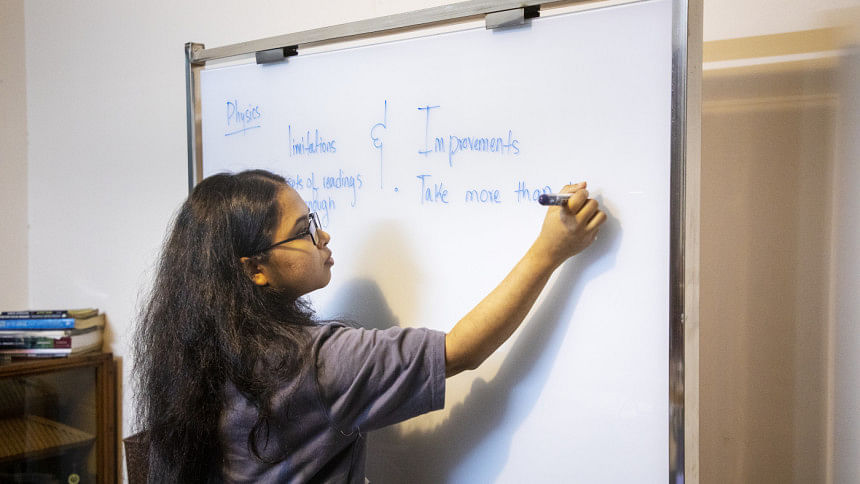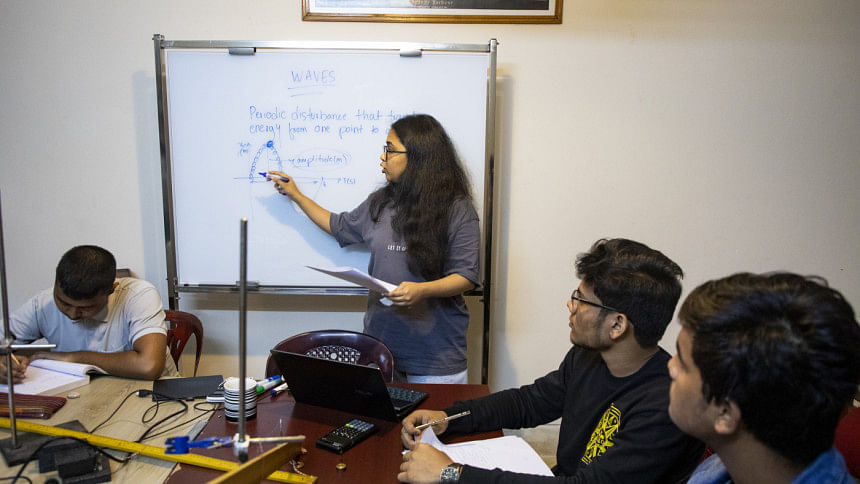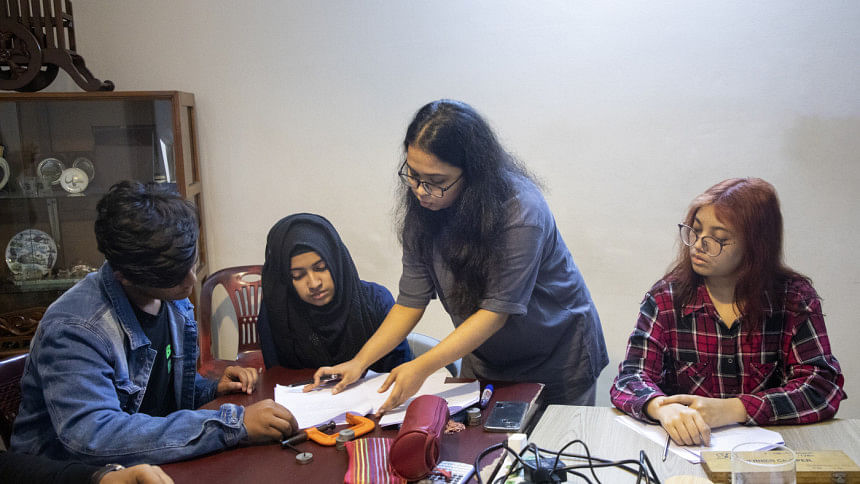The experience of starting your own coaching classes as a university student

In Bangladesh, private tuition is the first step toward financial freedom for most university students. According to educationist Prof Dr Syed Anwar Husain, the coaching sector is a BDT 50,000 crore business. A little over 29 percent of total education expenditure goes into coaching or house tutors, as per the Education Household Survey of 2014. Currently, a major portion of this sector is run by university students, which was previously taken up by school or college teachers. For university students, starting their own coaching classes can be the next step to early financial freedom with comparatively fewer risks.
The first struggle of starting any coaching centre is the preliminary investment for rent, bills, and other maintenance costs. For most students, it's their savings from private tuition or previous work experience. "I used to take classes in other coaching centres," said Eftekhar Rahman Efti, an undergraduate student at Bangladesh University of Textiles (BUTEX). "After a year or so, I had a certain popularity among the students. But those institutions either paid me on a per-class basis or gave me a certain percentage of the monthly profit. So, I used the capital I had saved up to rent a room and start my own classes with a few students."
The next step is to find enough students to start batches and try to make the institution profitable. "Previously, I used to do private tuitions at home. Those students ended up doing well academically and I got more offers. I told these students to help me organise a batch. It was also financially profitable for them since it's more expensive to afford tutors at home. But I had to make sure I was giving them the same quality I was providing them at home. This went on for a while and the word of mouth from the students and their parents really helped me grow," added Efti.

"First, we contacted some known juniors and acquaintances and offered free classes at first," said Saifur Rahman, an MBBS student at Mugda Medical College. "The students could decide whether to continue with our classes or leave based on those trial classes. The main difficulty was the sheer amount of competition we faced. Moreover, students tend to stick to their school teachers for coaching classes for the sake of good marks. But after countless sleepless nights, we were finally able to start with three batches and now we have multiple batches across the two branches at Shahjahanpur and Siddheswari."
Before coming into this sector, it is crucial to understand the differences between conducting private tuitions and managing an entire class. "When you teach a single student, you can analyse the student individually in the first few classes and modify your approach accordingly," said Rezwana Saima, an undergraduate student at Dhaka University (DU). "But a coaching class is comprised of students of different standards. So, you have to find an efficient way to handle everyone's problems with equal care while covering the syllabus as well."

Starting your own coaching, however, comes with its cons. For one, the amount of time required to sustain the coaching centre can impact one's social life. Efti shared, "I don't have time to maintain a life at home or family events. But coming from a middle-class family, the financial freedom I'm getting at this age owing to this sector is definitely liberating. My social or personal life is a cost I'm willing to pay for that freedom but that's certainly not the case for everyone else."
Additionally, the time and effort dedicated to the coaching can affect your own academic endeavours as well. "I'm finding it quite difficult to continue my studies along with the responsibility of taking classes regularly since I'm an MBBS student. I have to attend my own classes from 7:20 AM to 2:30 PM six days a week along with item tests almost every other day," said Safiur.

When asked about what young people should consider before coming into this sector, Efti replied, "This sector certainly isn't for everyone. I'd advise others not to come into this sector solely for the money because, in that way, you won't sustain. There are only a handful of schools which teach effectively in classrooms. So, you have a lot to offer to those students and a lot of gaps to fill in our education system. The first priority should be to offer to these students what their schools are failing to deliver and guide them accordingly with proper care. Only then, you can truly grow and make a name for yourself here."
References:
1. Dhaka Tribune (January 26, 2018). 29% of education cost goes to coaching, private tutor
Hasib Ur Rashid Ifti is a student of Bangladesh University of Engineering and Technology

 For all latest news, follow The Daily Star's Google News channel.
For all latest news, follow The Daily Star's Google News channel. 



Comments